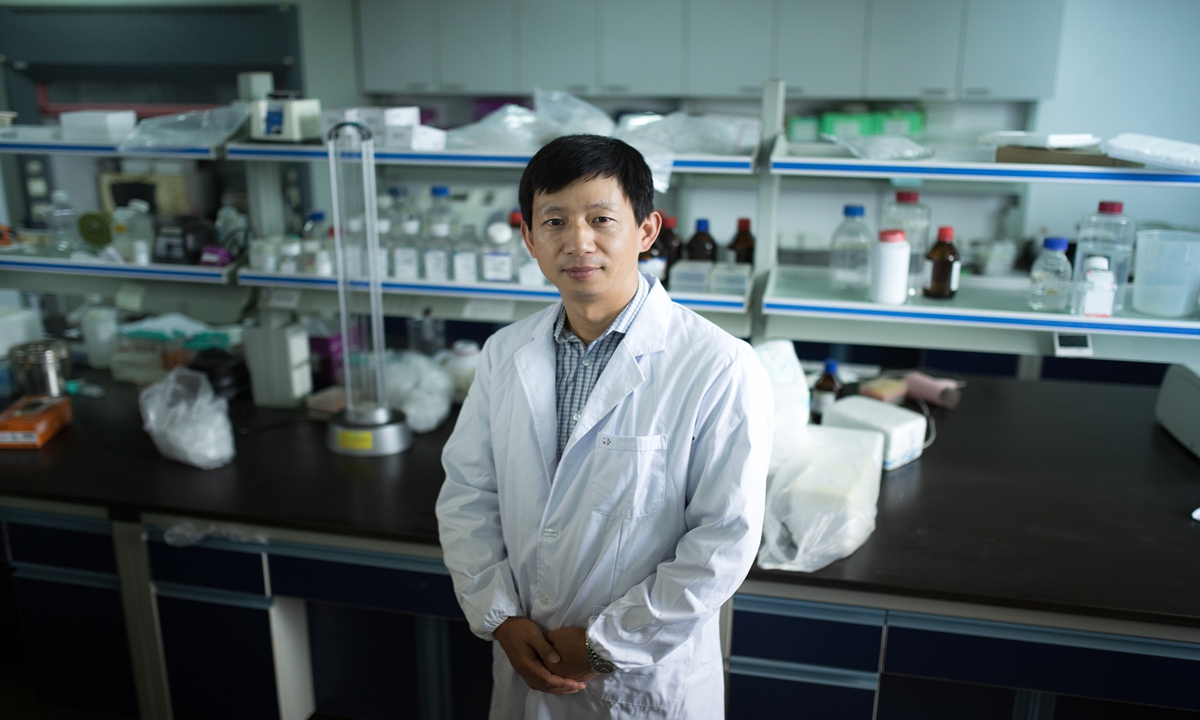Shanghai scientists develop new dual base editor to aid gene therapies
Source:Global Times Published: 2020/6/5 18:13:15

Li Dali, chief scientist of the ECNU research group Photo: Courtesy of the interviewee
A Shanghai research team, together with two groups from the US and Japan, has developed a new dual base editing tool, bringing gene editing technology closer to treating diseases such as β-thalassemia.
The team was led by Li Dali from East China Normal University (ECNU) in Shanghai, and their study was published on high-profile academic journal Nature Biotechnology on June 1. The two other groups led by Nozomu Yachie at the University of Tokyo and J. Keith Joung at Harvard Medical School took similar approaches to constructing dual base editors. In January, a group from the Institute of Genetics and Developmental Biology in Beijing, which is part of the Chinese Academy of Sciences, also released a similar study.
This field of study is competitive, with competition coming mainly from the US and Japan, Li Dali, chief scientist of the ECNU research group, told the Global Times on Thursday.
Although different groups develop similar tools, Li noted the study required much work to optimize the constructs for "better performance."
Li's team also published a study in Nature Cell Biology in May, having developed a series of new gene editing tools which have been proven to be suitable for gene therapies for genetic diseases in preclinical studies.
Some human genetic diseases are caused by mutations of different types of nucleic acids (DNA bases) at multiple sites, according to Li. Compared to single base editors, the newly developed duel tools can be applied more widely, meaning they could enrich the base editing tools that are useful for precise genome editing, Li said, adding that the research is significant for the treatment of some patients with genetic diseases such as β-thalassemia.
China has been making efforts to advance gene therapy in a broad range of areas. Early in 2003, the China Food and Drug Administration approved a gene therapy product - Gendicine, developed by a Shenzhen bio-tech company - to treat head and neck cancer. It was the first-ever approved gene therapy drug globally.
Posted in: SOCIETY,CHINA FOCUS